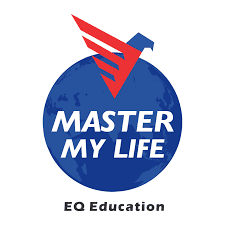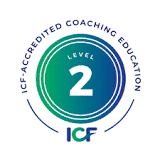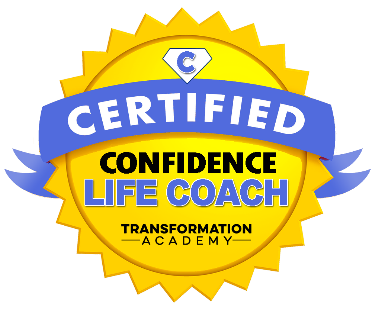As you navigate the complexities of the mid-career phase, you may find yourself facing various challenges that present unique opportunities for growth and advancement. By embracing strategic approaches and leveraging your experiences, you can transform obstacles into stepping stones towards a more fulfilling professional journey.
In this blog we will explore practical tips and insights on how to navigate through mid-career hurdles and emerge stronger on the other side.
Significance Of The Mid-Career Phase
The mid-career phase is a significant stage in your professional development, where you've gained valuable experience and expertise. It's a time of growth and an opportunity to take on more substantial responsibilities.
You're not a beginner, but you also have room to grow and learn. This phase allows you to reflect on your past successes and failures and use that knowledge to set new goals and improve. It's a chance to recharge your batteries and prepare for the next steps in your career.
Mid-career is a great time to assess your path, make changes, and take on new challenges. Embrace the difficulties that come with this phase, as they're essential for your growth and future advancement. Seize the moment to boost your skills and network, setting yourself up for continued success.
Hurdles Professionals Encounter During Mid-Career
The mid-career phase can bring its own set of challenges and obstacles. One common issue is feeling stuck or unmotivated due to a lack of career progression. It can be disheartening when you see fewer opportunities for growth and advancement.
Maintaining a work-life balance is another frequent challenge at this stage. As responsibilities mount at work and personally, finding time for yourself and your well-being can be difficult. This imbalance can lead to exhaustion and affect your work performance.
As you move up the career ladder, office politics become more intense. You might find yourself managing increased competition, strategic networking, and conflicts. Understanding these dynamics and maintaining professionalism is a skill you need to develop to succeed.
Awareness of these common mid-career challenges can help you prepare and navigate them effectively to continue growing and thriving in your career.
Leveraging Mid-Career Challenges into Opportunities
The mid-career phase often presents professionals with a landscape marked by both challenges and opportunities. This pivotal stage can be characterized by career plateaus, evolving industry demands, and the quest for greater personal fulfillment.
1. Build Strong Networks and Seek Mentorship:
Building a solid network of connections and finding a mentor are great ways to tackle mid-career challenges. Connecting with colleagues and industry experts expands your knowledge and opens up new opportunities. By attending events, joining professional groups, and using networking platforms, you can connect with the right people and gain valuable insights.
A mentor can be a great source of guidance and motivation, offering advice and a fresh perspective on your career. They can help you navigate challenges and make informed decisions for your growth and advancement.
These relationships can help you see things in a new light and push you forward in your career, turning difficulties into chances for success.
2. Reassess Goals and Align Priorities:
Mid-career is a great time to reflect on your goals and prioritize your future plans. As your life and goals evolve, it's essential to review and realign your professional objectives.
Take time to think about your current situation and where you want to be in the future. Evaluate your values and what's essential to you at this stage of your career. Do you need more work-life balance, greater responsibilities, or a change in direction? Adjusting your goals to match these new aspirations will help guide your decisions.
Focus on the key areas that will help you reach these revised goals. This might involve learning new skills, taking on different projects, or even considering a change in role or industry. Remain adaptable and willing to make adjustments as necessary.
Regularly reviewing and aligning your goals will help keep you on track and motivated as you move forward in your career.
3. Leveraging Flexibility for Career Advancement:
Matching your career goals with your values can give you the freedom to navigate mid-career challenges and turn them into chances for growth. Understanding what truly motivates you professionally helps you make decisions that fulfill your aspirations.
Being open to new possibilities, both within and outside your current role, is a great way to leverage this flexibility. Exploring different paths can lead you to exciting growth opportunities.
Networking is key to harnessing flexibility. Connect with a diverse range of professionals to expand your options and grasp unexpected chances for advancement.
Adaptability is also crucial. Being willing to learn new skills and embrace challenges enhances your flexibility and enables you to seize opportunities.
4. Innovating Within Corporate Boundaries:
You can still innovate and drive change even within the boundaries of a corporate role. The first step is identifying areas where improvements or changes could enhance efficiency or productivity. This proactive approach can make you a valuable asset to your company.
Don't hesitate to share your innovative ideas with your colleagues or superiors. Clearly communicate your proposals and their potential benefits to gain support for your initiatives.
Research and data can help back up your suggestions, adding credibility to your vision and increasing the chances of them being accepted. Embrace the opportunity to innovate, and you might find yourself driving real change and growth within your organization.
5. Reframing Identity and Career Fulfillment:
Mid-career is a great time to explore your professional identity and find true satisfaction in your work. Think about your passions and strengths and how they match your current role. Remember, growing in your career doesn't mean changing who you are; it's about evolving authentically.
Look for chances to grow and develop in ways that excite you. This could be new projects or further training that aligns with your interests.
Adopt a positive view of change, seeing it as an opportunity for growth and new adventures. This new perspective on your identity can lead to rewarding experiences and a fulfilling career.
6. Mastering Skill Obsolescence:
As your skills and the professional landscape evolve, make sure to update your abilities to stay relevant. Online courses, workshops, and certifications can help you adapt to new trends and technologies.
Network with the right people, attend industry events, and keep an eye out for training chances to stay up to date with advancements in your field. Consider finding a mentor to guide you in developing the latest skills.
Take on challenging projects that push you to learn and grow. Make sure to highlight your dedication to learning and adapting on your resume and in interviews.
Skill obsolescence is natural in the mid-career phase, but proactively addressing it can help you stay ahead and enhance your professional value.
Conclusion
As you move forward in your mid-career, remember to be adaptable, build networks, and keep your goals in check. Redefine your professional identity and stay open to growth chances to overcome challenges.
Continuously learn and develop new skills to stay relevant and competitive. These strategies can help you turn difficulties into opportunities for growth and advancement.
Keep striving and making the most of your experience and expertise. Success in the mid-career phase can be a fulfilling and rewarding journey.
FAQs
1. How Can Personal Values Impact Mid-Career Decisions?
Your personal values greatly influence mid-career decisions. They guide you in choosing paths aligned with your beliefs and goals. By staying true to what matters most to you, you can navigate challenges and seize opportunities effectively.
2. What Role Does Mentorship Play in Navigating Mid-Career Challenges?
Mentorship plays a vital role in navigating mid-career challenges. Your mentor provides guidance, feedback, and support, helping you navigate obstacles, broaden your perspective, and seize new opportunities. Connect with mentors who align with your goals and values.
3. Is It Advisable to Switch Industries During the Mid-Career Phase?
If you're considering switching industries during mid-career, evaluate your goals, skills, and opportunities. Research the new industry, network with professionals, and assess potential challenges. With careful planning and a clear strategy, such a transition can be rewarding.























